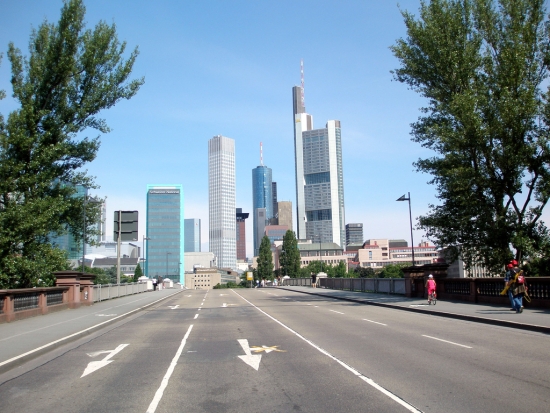Investors looking for a better return than London or other European markets are turning to the German property market to boost their portfolio.

The rush for high yield investments has increased transactions by 18.6 per cent so far this year and is expected to total at least €30bn — almost £25bn — by year end, still a long way short of the 2007 record high of €52.2bn.
Demonstrating it has now clawed its way clear of the global recession — with a low of €10.8 billion in 2009 — the latest property sales figures come as Germany sees a record number of mergers and acquisitions among listed companies and consolidations of investment-management funds.
Pension funds, insurers and hedge funds are among those snapping up German commercial property, attracted by the country’s stable economy. International Monetary Fund predictions say Germany’s economy is expected to expand by 0.5 per cent this year, rising to 1.4 per cent in 2014. The country’s 5.2 per cent unemployment rate is already the lowest since 1991.
“Hedge funds we haven’t seen before are now showing up,” said Keith Breslauer, managing director at the private-equity firm, Patron Capital Partners, and which plans to spend €1bn on German real estate. “Two years ago there were five bidders on an income-producing asset — now there are 25 bidders.”
Foreign buyers attracted to the German market include those from the US, the UK and Asia. The market is still dominated by domestic buyers, but so far this year international investors from 21 different countries have purchased German commercial property with a value above €1m. Almost 40 per cent of investment in Frankfurt came from non-Europeans.
A group of six Korean investors — most of which have never invested in Germany — recently purchased the Gallileo Tower in Frankfurt for €250m. And a joint venture of Axa Real Estate Investment Managers and Norges Bank Investment Management announced is about to buy the headquarters of German newspaper Süddeutscher Verlag for €164.1m.
Buying trends have also changed, Breslauer explained. During the downturn most investors preferred fully leased buildings with solid cash flows. They are now also looking at empty buildings or those needing refurbishing. Patron Capital is close to purchasing two buildings, both 40 per cent empty, with Breslauer adding that it’s now also possible to find good opportunities outside of the main city centres and financial districts.
Locating non-traditional opportunities is made trickier for foreign investors because , unlike most countries, Germany does not have one central hub with Munich, Berlin, Frankfurt, Düsseldorf, Hamburg and Cologne all having vibrant business and insurance centres.
Listed German real-estate companies are also attracting more attention as companies grow through mergers and acquisitions. The real-estate giant Deutsche Wohnen is in the process of acquiring property company GSW Immobilien. The takeover will create one of Germany’s largest property groups, with a combined €8.5bn portfolio, and finally put a German real-estate company on a par with much larger European peers such as Paris-based Unibail-Rodamco and the UK’s Land Securities Group.
“If you want to be on the radar of big investors, you have to be big,” said Jan Linsin, head of research at CBRE.
Previous Post
Business Rates to be capped in Autumn Statement